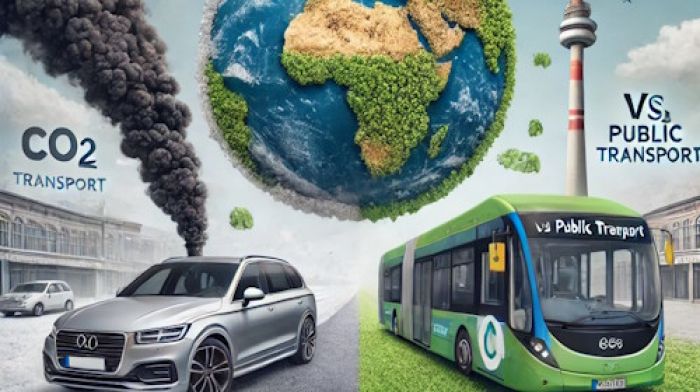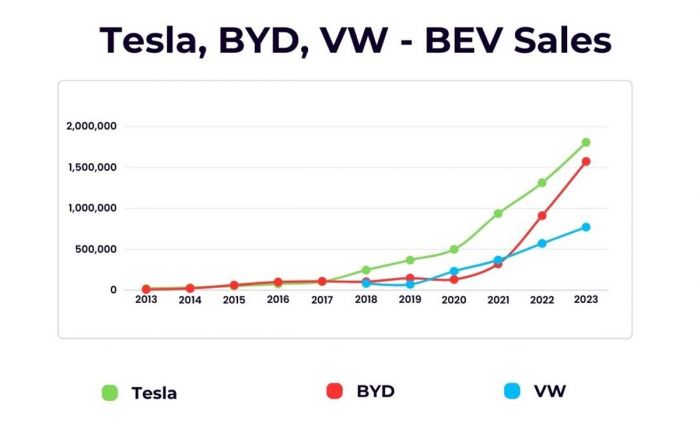The fuel economy of any vehicle is an important feature that almost always affects a car buyer's decision. Even if the vehicle is exquisitely garnished with the latest technology and features, poor MPG, especially in our era of rising fuel costs, will make such a vehicle less attractive. We are going to investigate a case of whether the MPG of the Ford F150 2.7L V6 is as marketed.
Key features and my opinion about the engine
- Production years:2015-now
- Average lifespan of 2.7L V6 EcoBoost:190,000-240,000 miles
- Fuel supply type:direct injection (later combined direct + port injection)
- Power range:315-330 hp
- Fuel efficiency:average
- Engine block material:cast-iron
- Engine reliability score:medium
- The most common problems:valvetrain problems, issues with electronics, oil consumption, power loss.
.jpg)
Understanding the F150 2.7 EcoBoost
In 2015, Ford introduced a whole lineup of new variants in the F-Series. The 2.7L EcoBoost V6 and 3.5L EcoBoost V6 F150s were introduced. The 3.5L V6 became the standard engine, while the 3.7L V6 was withdrawn. The 5.0L V8 engine continued as an option, while the 6.2L V8 engine was discontinued. At the launch of the thirteenth generation, 6-speed was the only transmission available.
The F150 2.7L is built using the same military-grade strong materials and technology to ensure that it becomes reliable and capable throughout the years. This model has a small displacement twin turbo-6 engine with 325 Hp power and 375lb-ft. of torque. For the automatic 4-wheel option, you'll find a two-speed transfer case.
In 2017, Ford changed the 6-speed transmission to a 10-speed one for the 2.7L F150 and other variants. The truck is still able to offer impressive power of 325 Hp and 425lb-ft. of torque. The truck is equipped with a Sports mode feature which keeps the twin-turbo engine ready to strike whenever and wherever called upon.
In 2018, Ford made a few tweaks to the 2.7L F150. These changes were comprehensive enough to make Ford name the new F150 the 2nd generation of 2.7L F150. The new 2.7L came with a new EGR system and a port for a direct fuel injection system. The more recent 2018 2.7L carried enough oomph as before and will pull forcefully from idle. A great thing about the 2.7L is that it delivers power practically at any chosen RPM. The one thing that makes the 10-speed 2.7L is the smooth shifting, which keeps the revs low while taking full advantage of the phenomenal torque.
What is the official F150 2.7L MPG?
As you'd expect, the EcoBoost badge on the F150 2.7L has something to do with good fuel economy. In fact, this truck affords the driver greater fuel efficiency and, at the same time, delivers greater horsepower and torque.
Some popular blogs and car review gurus agree on the truck's fuel economy numbers of 20 MPG in city driving and 26 MPG on the highway. The combined consumption for the truck is in the range of 21 MPG. Of course, the MPG will vary depending on driving habits and the type of roads you drive on. However, these are the marketed figures for this truck.
Compared to the 3.5L V6 EcoBoost, whose consumption is 17MPG in town and 23 MPG on the highway, the 2.7L is a better pick as far as fuel economy is concerned. The High-Input Limited trim 3.5L EcoBoost, whose power output is 450 Hp and 510 lb-ft. of torque is another story together. It has a payload of 3,180 lbs and can tow a maximum of 13,200 lbs. Its efficiency is 15 MPG and 18 MPG for the city and the highway, respectively. These fuel economy stats apply to the 2015 to 2021 models.
The fuel efficiency of your 2.7 L EcoBoost F150 will likely not tally with the official numbers, especially if your driving is a mixture of city roads and the highway. The figures will also vary from driver to driver because of different driving habits. Aggressive acceleration, towing, or driving on muddy roads will certainly not give you the official numbers. But the 2.7 L EcoBoost will give you reasonable fuel economy numbers compared to the competition.
Are the F150 2.7L poor MPG claims true?
There are claims that the 2.7L has a worse MPG than it is marketed. This claim gained traction after a potential buyer went to a dealership in Arizona, USA, and was advised by the then sales manager there that the 2.7L is only some of what it's claimed to be. This customer posted a question on a Ford F150 forum for advice.
According to the customer, the manager claimed that the 3.5L EcoBoost is better 'geared' to the transmission than the 2.7L, which made the 3.5L post better numbers in MPG. The sales manager went a step further by claiming that the dealership actually trades whatever 2.7L they get sent with other dealerships because the 2.7L trucks don't move.
These statements from the F150 salesman have been disputed by numerous F150 owners who say the actual figures are quite to the contrary. The figures posted on FordDirect, an affiliate Ford website, give 20 MPH in the city and 26 MPG on the highway.
In the responses the potential buyer of the F150 got, it is clear that the MPG statement stated by the seller was way off official numbers. An interesting observation is that the seller was pushing for the buyer to pick the 3.5L option the dealership had in stock. Some respondents to the question posed noted that the seller was doing what most salespeople do - sell whatever they got.
What do real owners of the F150 2.7L EcoBoost say?
The F150 2.7L is a capable truck, and irrespective of the trim you pick, the fuel efficiency is supposed to be in the range of the official figures from Ford. EPA also authenticates these numbers. Remember that the 2.7L truck payload is 2,480 lbs, much less than the 3,250lb of the 3.5L option. As its widely known, the lighter the vehicle, the higher its fuel efficiency.
The average numbers reported by F150 2.7L owners indicate a better fuel efficiency than the 3.5L option. Most 2.7L drivers get between 18 and 21 MPG in the city and anything above 23 all the way to 28 MPG on the highways.
What factors influence fuel consumption in a vehicle?
The official fuel consumption ratings of the F150 2.7L are achieved after subjecting the truck to simulations. Such results are achieved by testing the vehicle on dynamos which simulate different climate conditions. These tests are, therefore, achievable under almost perfect conditions. Here are factors that will affect your truck's MPG;
- Driving behavior - Driving at inconsistent speeds, rapid acceleration, speeding, and extended idling will dramatically affect the MPG numbers. Smooth driving can reduce your fuel consumption by up to 25%.
- Weather - Living in very cold weather means your fuel consumption will be higher than the official numbers. In summer, the AC dramatically affects the fuel consumed by your vehicle. Open windows at cruising highway speeds also negatively affect your car's MPG.
- Weight - As noted earlier, the weight of your car directly affects the MPG. In our case, the 2.7L EcoBoost should consume less because it is lighter than the other F150 trucks in the lineup. Towing also adds to the strain on the engine, and MPG should be lower when you tow.
- Aerodynamics - The shape of your truck is such that it uses the least fuel possible. A tonneau cover enhances your truck's aerodynamics and makes it more fuel efficient. Carrying stuff on the vehicle's roof increases air resistance, forcing the car to use more fuel to move forward.
- Route, congestion, terrain - The type of road you drive through directly affects the MPG of your truck. A congested city route will force the truck to use more fuel, unlike driving on the highway.
Conclusion
F150 2.7L EcoBoost is the lowest variant in the F150 lineup, but it exudes the same badass features that every hardcore truck lover could wish to have in their truck. The twin-turbo V6 engine performs superbly well under all conditions. Though not as strong when it comes to towing, it still holds its value. The truck is not as premium as the 3.5L EcoBoost or even the 5.0L V8 options, but still, it is every bit an F150.
Being the lowest in terms of power and torque, the 2.7L report the best MPG. 2.7L owners report comparable figures to those marketed by Ford. Safe for a false alarm about the truck's fuel efficiency, this truck is every bit as it is marketed.
About the authors
The CarAraC research team is composed of seasoned auto mechanics and automotive industry professionals, including individuals with advanced degrees and certifications in their field. Our team members boast prestigious credentials, reflecting their extensive knowledge and skills. These qualifications include: IMI: Institute of the Motor Industry, ASE-Certified Master Automobile Technicians; Coventry University, Graduate of MA in Automotive Journalism; Politecnico di Torino, Italy, MS Automotive Engineering; Ss. Cyril and Methodius University in Skopje, Mechanical University in Skopje; TOC Automotive College; DHA Suffa University, Department of Mechanical Engineering






Add comment